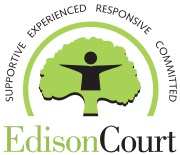Dr. Jon Kabat-Zinn describes mindfulness as a “process of being present in the moment without judgment and with care, concern, and compassion for self and others.” Teachings related to mindfulness have been around for thousands of years and are found in many religions. There have been numerous studies and meta-analyses showing mindfulness meditation to be a helpful as a technique to enhance coping skills and reducing impulsivity. Gillespie, et. al (2012) found that controlled breathing techniques, which are the foundation to mindful based approaches and mediation could potentially increase prefrontal control over the amygdala thus leading to improved emotional control and sexual self-regulation. Borders, et al (2009) determined that mindfulness decreased anger, hostility and aggression by decreasing rumination. Van Dam, et. al. (2018), in self-report measures subjects report a difference in their reactivity to experiences after regular mediation.
“The stiller you are the calmer life is.” – Rasheed Ogunlaru
The direct contributions of mindfulness and other forms of meditation described above can also assist clients in being more amenable to participating in treatment. Improved self-control can further boost client capacity in responding to the services once involved. Each of these aspects aids in programming adhering to the responsivity principle. Finally, there is one point that is often overlooked: Before a person can use cognitive-behavioral interventions to change their thought patterns and behaviors, they must first be able to more fully observe these patterns.
Inasmuch as treatment programs include an explicit focus on examining – even contemplating – internal states and ultimate concerns, approaches such as the Good Lives Model and Motivational Interviewing can dovetail effectively with mindfulness. Likewise, it is not difficult to see how mindfulness can help people who have abused become more empathic. Further, clients practicing mindfulness are better poised to recognize that the tools they need for change exist within them and that they have better control over their thoughts and emotions than they realize. In the residential treatment programs of Edison Court (Mathom House, Easton Manor, and PATHS) we have observed that with practice, clients learn to better regulate themselves and to come to more thoughtful responses to the situations which present themselves.

Add new comment